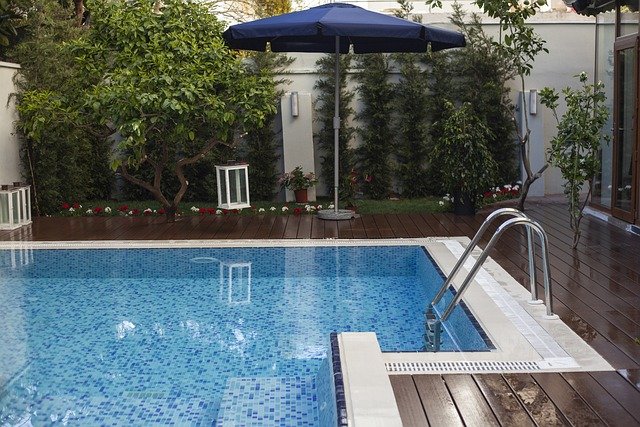Strategies for Effective Mosquito Control Solutions
Mosquitoes are more than just a nuisance during outdoor gatherings; they can transmit diseases such as West Nile virus, Zika, and various forms of encephalitis. Creating an effective mosquito control strategy for your yard combines multiple approaches to reduce mosquito populations and minimize bites. From eliminating standing water to applying appropriate treatments, comprehensive mosquito management requires understanding these pests' life cycles and habitats. By implementing targeted control methods, you can significantly reduce mosquito activity around your home.

How to Get Rid of Mosquitoes in Your Yard Through Habitat Management
The foundation of effective mosquito control begins with eliminating breeding sites around your property. Mosquitoes require standing water to complete their life cycle, laying eggs in areas as small as bottle caps or as large as decorative ponds. Remove standing water from gutters, flower pot saucers, birdbaths, and tarps regularly. Check for water accumulation in outdoor furniture, toys, and equipment after rainfall.
Proper drainage prevents water from pooling in low-lying areas of your landscape. Installing drainage systems or grading your yard to direct water flow away from gathering spots significantly reduces mosquito breeding opportunities. Additionally, maintaining swimming pools with proper chlorination and circulation keeps these larger water sources from becoming mosquito nurseries.
Essential Mosquito Control Tips for Homeowners Using Biological Methods
Introducing natural predators creates a sustainable approach to mosquito management. Encouraging beneficial insects like dragonflies, spiders, and predatory beetles helps control mosquito populations naturally. Planting native flowers that attract these predators enhances your yard’s ecosystem while reducing pest insects.
Fish species such as gambusia, goldfish, and koi consume mosquito larvae when introduced to decorative ponds or water features. Bacillus thuringiensis israelensis (BTI), a naturally occurring bacteria, provides targeted control by killing mosquito larvae without harming other wildlife. These biological dunks or granules can be applied to standing water that cannot be eliminated, such as storm drains or permanent water features.
How to Keep Mosquitoes Away from Outdoor Spaces With Physical Barriers
Creating physical barriers between mosquitoes and outdoor living areas provides immediate protection. Installing fine-mesh screening around patios, decks, and gazebos creates enclosed spaces where families can gather without mosquito interference. Portable screen tents offer flexible protection for camping, picnics, or temporary outdoor events.
Strategic landscaping choices also serve as natural barriers. Dense plantings of certain shrubs and trees can create wind corridors that make flying difficult for mosquitoes. However, avoid over-planting areas that could create stagnant air pockets where mosquitoes might shelter during daylight hours.
Professional Mosquito Treatment Options for Comprehensive Control
Licensed pest control professionals offer several treatment approaches for severe mosquito infestations. Barrier spray treatments target adult mosquitoes and their resting areas, applying residual insecticides to vegetation, structures, and shaded areas where mosquitoes congregate during daylight hours. These treatments typically provide protection for several weeks.
Automatic misting systems deliver precisely timed applications of approved insecticides around property perimeters. These systems can be programmed to activate during peak mosquito activity periods, typically dawn and dusk. Professional-grade larvicides treat larger breeding areas that homeowners cannot effectively manage independently, such as storm water management systems or extensive wetland areas adjacent to properties.
Tips to Get Rid of Mosquitoes Using Natural Methods and Repellents
Plant-based repellents offer chemical-free alternatives for mosquito control. Essential oils from citronella, peppermint, lemongrass, and eucalyptus provide varying degrees of mosquito deterrence when applied to skin or dispersed through outdoor diffusion systems. While these natural options may require more frequent reapplication than synthetic alternatives, they appeal to families seeking reduced chemical exposure.
Certain plants naturally repel mosquitoes through their aromatic compounds. Marigolds, basil, lavender, and citronella grass can be strategically planted around outdoor seating areas and entry points. While these plants alone cannot eliminate mosquito problems, they contribute to integrated pest management approaches when combined with other control methods.
| Service Provider | Treatment Type | Estimated Cost Range |
|---|---|---|
| Orkin | Barrier spray treatments | $75-$150 per treatment |
| Terminix | Seasonal mosquito control | $300-$600 per season |
| Local pest control companies | One-time yard treatment | $50-$200 per application |
| Mosquito Squad | Monthly treatment programs | $100-$300 per month |
Prices, rates, or cost estimates mentioned in this article are based on the latest available information but may change over time. Independent research is advised before making financial decisions.
Successful mosquito control requires combining multiple strategies rather than relying on single solutions. Regular property maintenance, strategic use of biological controls, and professional treatments when necessary create comprehensive protection against these persistent pests. Homeowners who implement integrated pest management approaches typically achieve better long-term results than those depending solely on reactive measures.
Monitoring mosquito activity levels throughout the season helps determine when to intensify control efforts. Peak breeding periods often coincide with warm, humid weather and increased rainfall, requiring more frequent attention to breeding site elimination and barrier maintenance. Consistent application of these strategies transforms outdoor spaces into comfortable environments for family activities and entertainment throughout the warmer months.




